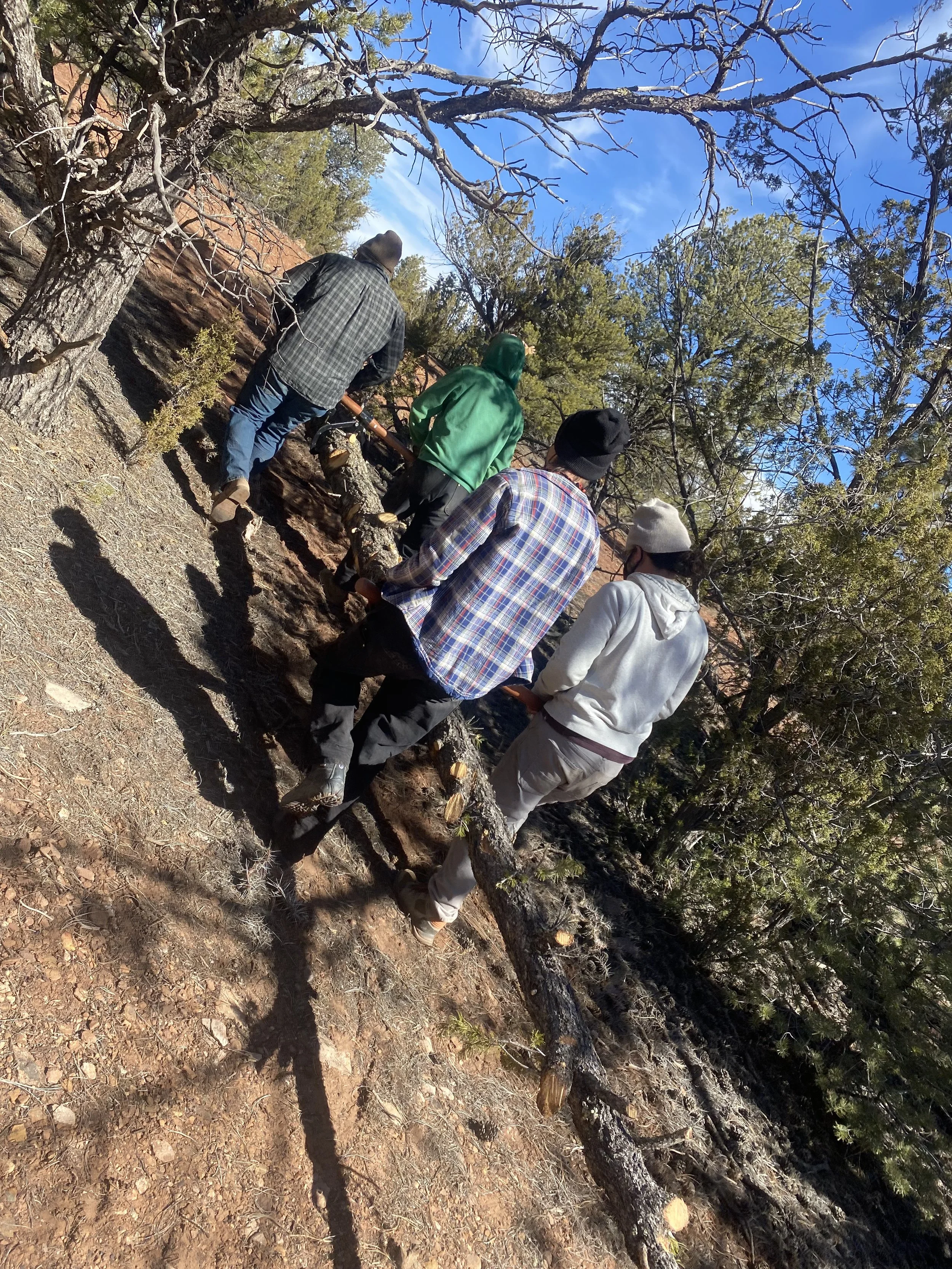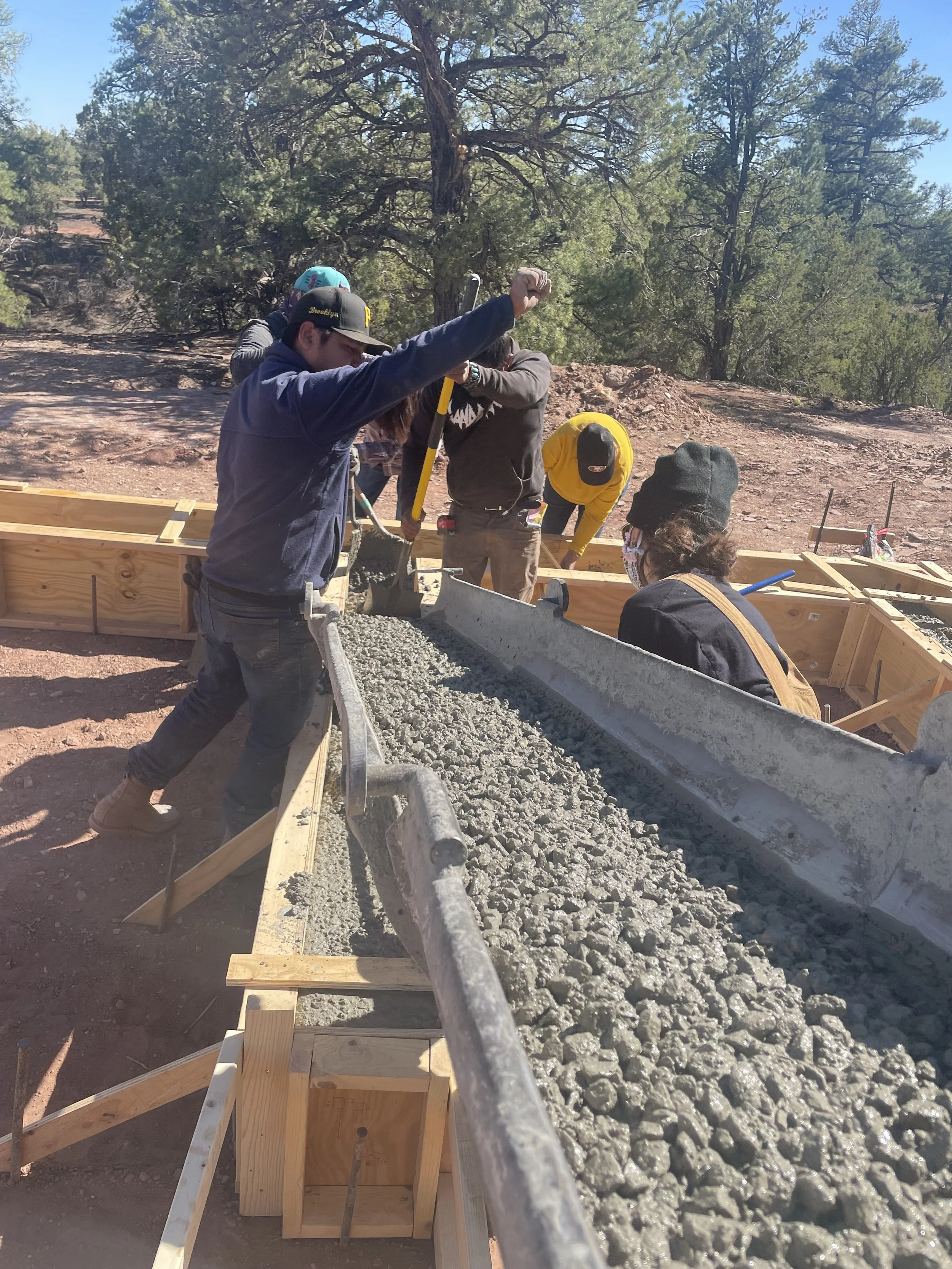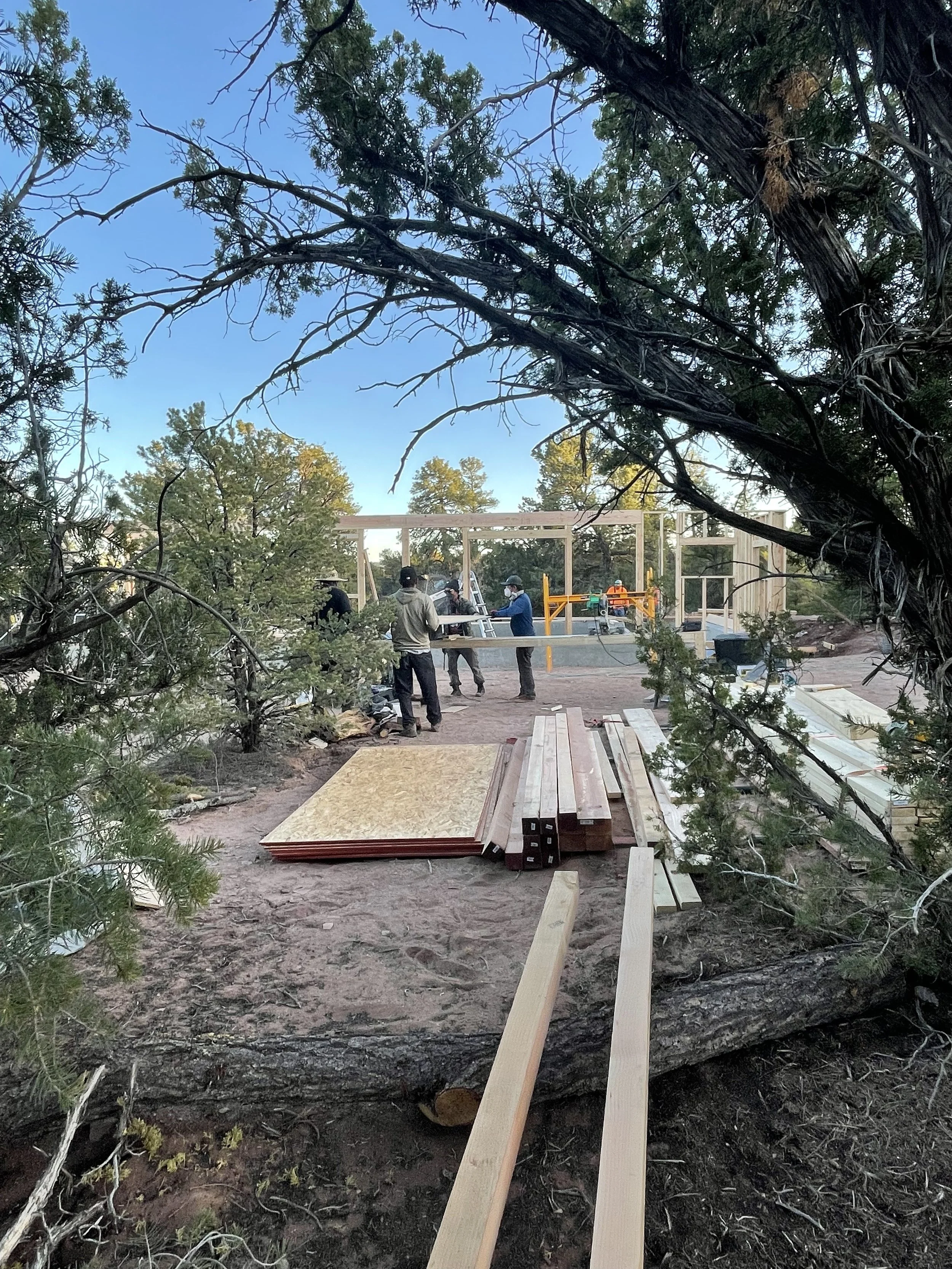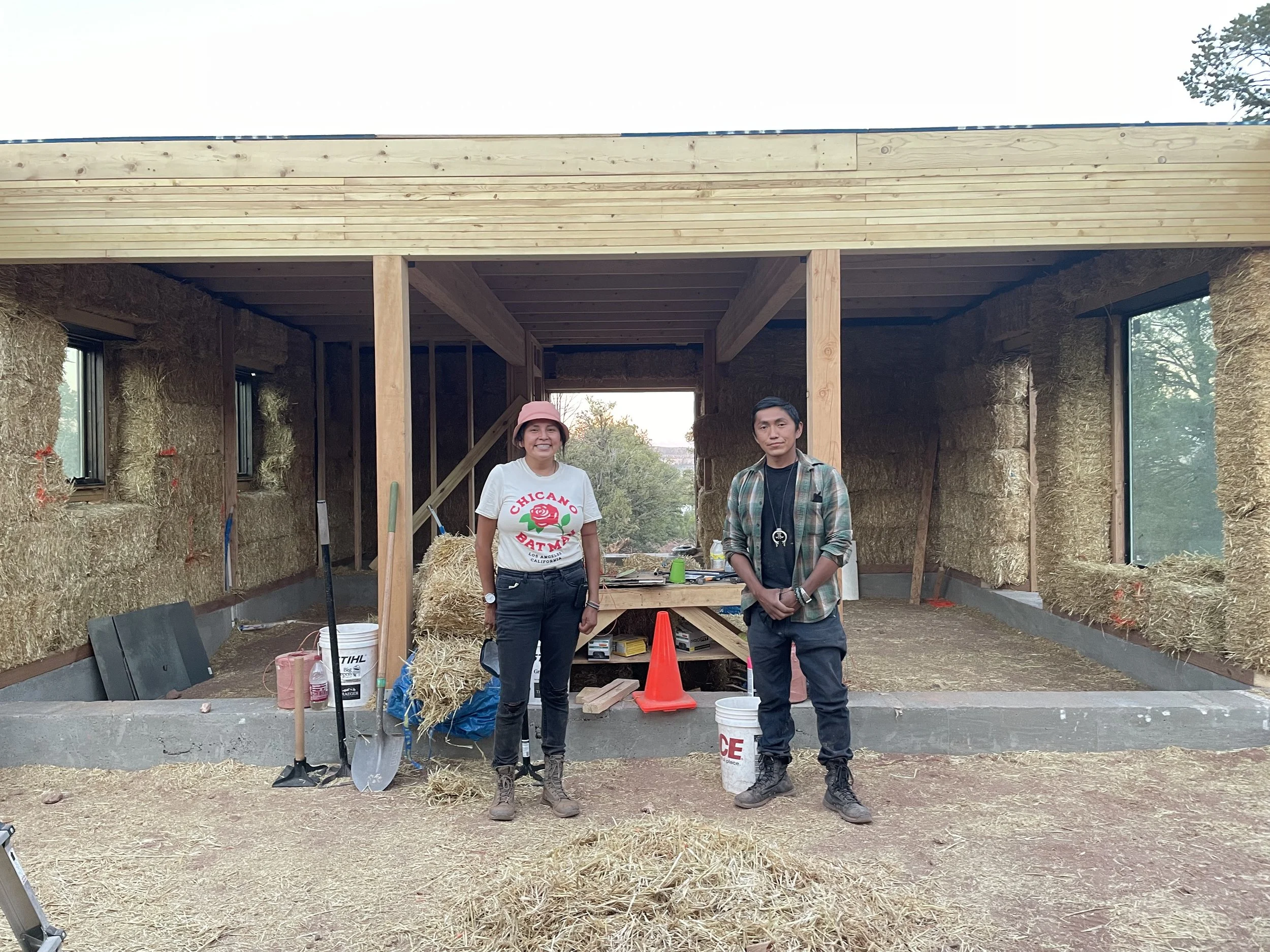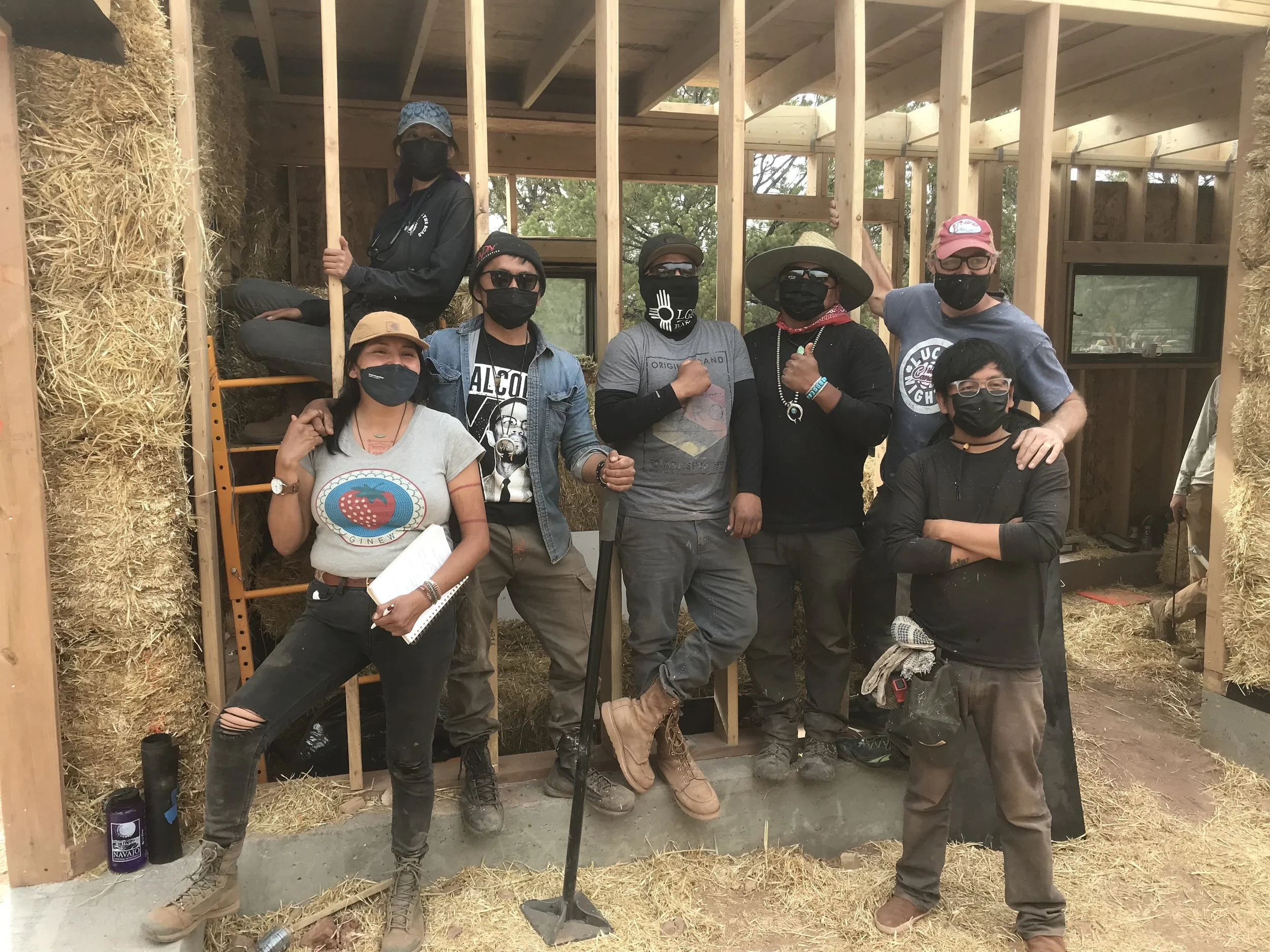Building Society
Over the past two years, we have been diligently and thoughtfully building a 1200 square foot community kitchen constructed mostly out of strawbales. We have come a long way in this beautiful and meaningful project—it all began with the important work of cleaning up the illegal trash dumps that had unfortunately accumulated since the time settler invaded our homeland in the 1800s, along with planting various native plants to help detoxify the surrounding environment. We also focused on making the access road more drivable to facilitate transportation to the build site. In addition, we undertook the removal of dead trees and implemented measures to restore the surrounding watersheds effectively. This was followed by constructing a barn specifically designed to hold the 500 strawbales, making the loading and unloading process much more manageable. After that came the actual building phase, which started with laying down the foundation and framing up the structure. We later hosted a week-long strawbale building workshop, where individuals from the community came together to learn, lend their hands and skills in helping to install the strawbales. Currently, we are in the process of closing up the structure by installing windows and doors as well as extending the size of the restroom to better accommodate everyone. With future plans in mind, we are actively preparing for a lime plastering workshop scheduled for the spring of 2025, alongside another community strawbale building workshop, during which we will be constructing a modern ancestral ceremonial home.
The straw bale community kitchen build is the beginning of a series of workshops on natural building techniques, such as straw, adobe, hempcrete, and earth bags we hope to bring across the reservation. This project aims to foster regenerative activities to support organizers and enhance community resilience through infrastructure development, connecting our Diné relatives with their ancestral ways. The pilot homestead initiative aspires to strengthen communities and traditional practices, envisioning future community hubs as decolonial learning centers that reinforce the Navajo Nation. We aim to empower and inspire our people to come home and build together modern ancestral homes for each other and those in need of housing using different natural building techniques; reestablishing building societies just as our ancestors did,
These homesteads will function as classrooms, teaching essential skills within the community. We aim to enhance access to decolonial knowledge, promoting engagement with ancestral practices through land-based education, ceremonies, songs, and elder interactions. These efforts will reinvest time and energy into the community, improving health and equity.
A Diné Homestead will serve as a model for sustainable regeneration through the implementation of sustainable building practices, comprehensive land restoration efforts, effective water harvesting techniques, and the integration of solar energy solutions. By conducting a series of informative workshops and skill shares, we will facilitate the sharing of valuable knowledge, ultimately making our community stronger, more cohesive, and more resilient against the ongoing challenges we face today.
Our vision is to establish inclusive community spaces that encourage collaboration, creativity, and the pursuit of the liberation of our homeland. By placing a strong emphasis on decolonization, sustainability, and the preservation of traditional dwellings, we can meaningfully reconnect with Diné teachings and seasonal cycles. Through this approach, we aim to ensure that the wisdom and ancestral knowledge of our communities effectively guide our future actions and decisions.


